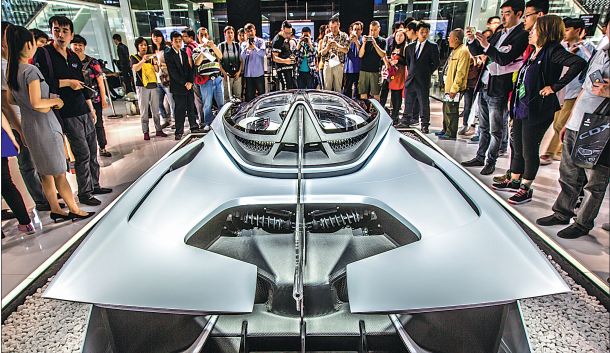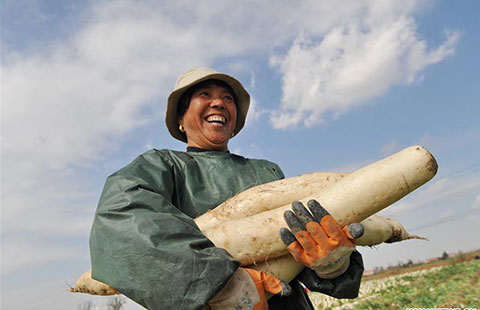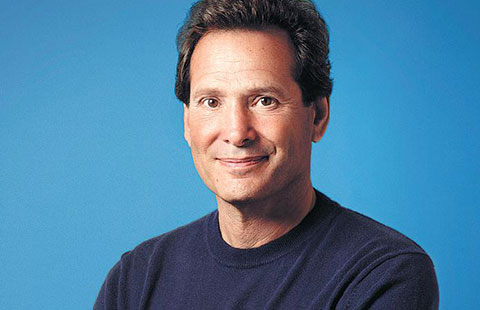Too many freeloaders on new energy money
 |
|
Visitors gather around a Faraday Future FFZERO1 electric car during an unveiling event in Beijing.[Provided to China Daily] |
Industry experts are calling for faster phasing out of government subsidies for new energy vehicles, as they say too many companies don't have any long-term plans to develop such vehicles.
Zhang Shulin, former secretary-general of China Association of Automotive Manufacturers, said many companies are entering the industry but only less than 20 electric passenger carmakers have concrete strengths.
"Only a few manufacturers have long-term plans and are trying to develop new energy vehicles; the rest focus solely on the government subsidies and don't have any long-term development plans," he said.
"People want the free money," he said. He is urging the government to end the subsidies for new energy vehicles and let the market competition determine which companies survive.
"A large number of new energy vehicle-makers should be forced out of the industry," agreed Wang Ruixiang, president of the China Machinery Industry Federation, at the Automobile Joint Venture Electrification Strategy Seminar in Shenyang on Oct 24.
"Those that remain should be able to act and respond in a timely manner to today's challenges," he said.
Many Chinese new energy vehicle-makers are mainly driven by capital injections into a company that has managed to obtain some land and some talent, according to Li Qingwen, president of the Automobile Evaluation Academy.
The greatest difficulty in the sector lies in the mass production of new energy vehicles, according to Zhang Yongwei, deputy director of the enterprise research institute under the Development Research Center of the State Council.
"A concept car can be well-designed. But for mass production it will have to undergo strict tests and examinations, and the manufacturers will need the necessary production capabilities," Zhang said.
"After meeting many new players, I'm concerned about whether they can turn their ideas into reality," he said.
More than 200 Chinese companies have been approved by the authorities to manufacture new energy vehicles, including about 70 which claim they will make electric passenger cars.
The Ministry of Industry and Information Technology is planning to introduce a system to rule out those new energy vehicle makers who fail to realize production on schedule, according to Zhang Shulin.
Chen Quanshi, director of the automotive research institute at Tsinghua University, encouraged the sector to speed up its development during the three-year period before the government phases-out its subsidies as currently planned.
"Without cheating or abusing the subsidies, electric vehicle-makers need to speed up the development of their products while they still have government support," he said.
East China's Shandong province tightened its investment regulations in October, requiring those planning to produce new energy vehicles to have power systems and whole-vehicle research and development capabilities ahead of government approval for their establishment.
In the first nine months of the year, 398,000 new energy vehicles were sold in China, a year-on-year rise of 37.7 percent, according to data from China Association of Automotive Manufacturers.
Meanwhile, electric carmaker Tesla Inc said last week it is roughly three years away from starting production in China, after confirming it was in talks with the Shanghai city government for a plant plan.
California-based carmaker Faraday & Future Inc, which is controlled by Chinese billionaire Jia Yueting, was in the news again recently, as it was reported that its operations had long been halted and Jia was planning to resign and cash-out through "a Chapter 11 bankruptcy protection and restructuring".
Faraday & Future Inc's Chinese team said there's no such "bankruptcy protection plan" and the claim was a rumor was aimed at damaging its bid to attract investment.
The company said it is planning its first round of investment, after investing nearly $1 billion and returning the $16,200 government fund and the $620,000 tax deduction to the Nevada state government in August.
























